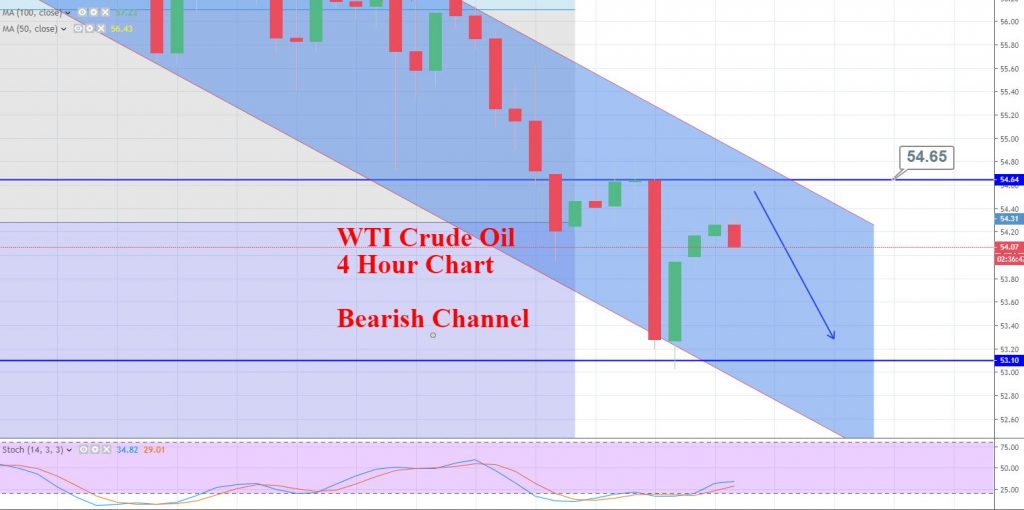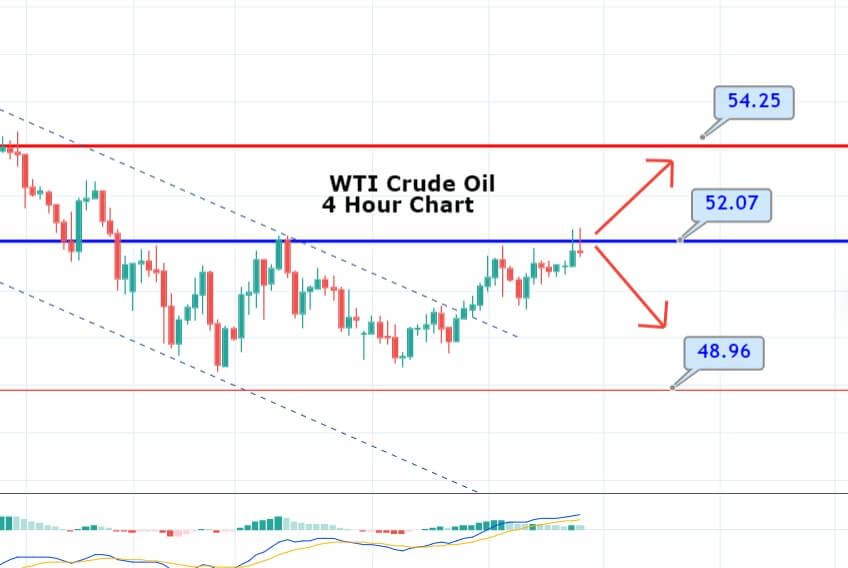The ebb and flow of markets have long been the subject of fascination for traders, financial analysts, and investors. In the vast and multifaceted realm of the forex market, the influence of crude oil prices has proven to be a significant factor in shaping currency value and driving market volatility. In this article, we will delve into the intricate relationship between crude oil and the forex exchange rate, exploring the dynamics that have made oil a market mover of paramount importance.

Image: www.fxleaders.com
The Black Gold and the Currency Market
Crude Oil: A Global Commodity
Crude oil, a finite and non-renewable resource, is the lifeblood of global economies. It is a primary source of energy, powering vehicles, generating electricity, and fueling industries across the world. The demand for crude oil is ever-present, making it a highly sought-after commodity and a benchmark for economic activity.
The price of crude oil is determined by a myriad of factors, including supply and demand dynamics, political unrest, and global economic conditions. Notably, the Organization of the Petroleum Exporting Countries (OPEC) plays a pivotal role in regulating oil production, influencing prices through coordinated actions.
The Interplay of Oil and Forex
The relationship between crude oil prices and forex exchange rates is a two-way street. On one hand, changes in oil prices can impact currency values. For instance, a rise in oil prices can lead to an appreciation of the currencies of oil-exporting countries, as increased oil revenues boost their economies and attract foreign investment.
On the other hand, currency fluctuations can also affect oil prices. A strengthening of the U.S. dollar, for example, can make it cheaper for countries to import oil, potentially leading to a decrease in oil prices. This interplay underscores the complex dynamics between these two markets.
The Impact of Crude Oil on Major Currencies
Oil’s Influence on the US Dollar
The U.S. dollar, the world’s reserve currency, has a significant relationship with crude oil prices. As the U.S. is a net importer of oil, an increase in oil prices typically leads to a depreciation of the dollar, as demand for foreign currencies rises to pay for oil imports.

Image: www.forex.academy
Oil and the Euro
The euro, the second most traded currency globally, is also affected by crude oil dynamics. The eurozone includes several major oil-importing countries, such as Germany and France. A rise in oil prices can put upward pressure on inflation in these countries, potentially leading to interest rate hikes by the European Central Bank (ECB). This, in turn, can strengthen the euro against other currencies.
Expert Insights and Practical Advice
Tips for Navigating the Crude Oil-Forex Connection
Understanding the relationship between crude oil prices and forex rates is crucial for successful trading and investing. It is advised to:
- Monitor oil price movements closely and stay informed about geopolitical events that could affect supply and demand.
- Consider the impact of oil price changes on the currencies of major oil-exporting and importing countries.
- Utilize technical and fundamental analysis to identify trading opportunities.
By incorporating these tips into your trading strategy, you can better navigate the complexities of the crude oil-forex nexus.
Crude Oil Affecting Forex Rate
FAQ on Crude Oil and Forex
Q: How does oil price volatility affect forex trading?
A: Oil price volatility can create both opportunities and risks for forex traders. It can lead to sharp currency value fluctuations, allowing for potential profits, but also increased uncertainty.
Q: Which currencies are most sensitive to oil price changes?
A: The currencies of oil-exporting countries, such as Russia, Saudi Arabia, and Venezuela, tend to be most sensitive to oil price fluctuations, as their economies are heavily reliant on oil revenues.
Q: How can I stay up-to-date on the latest news and analysis about crude oil and forex?
A: There are numerous resources available to stay informed, including财经新闻, financial blogs, and specialized websites that provide real-time updates and in-depth analysis.
Conclusion
The relationship between crude oil prices and forex exchange rates is a dynamic and multifaceted one. Understanding this relationship is crucial for traders to make informed decisions and identify potential trading opportunities. By closely monitoring oil price movements, staying abreast of current events, and implementing appropriate strategies, market participants can navigate the complexities of this intertwined market landscape.
Are you intrigued by the interplay of crude oil and forex rates? Share your thoughts and experiences in the comments below.






